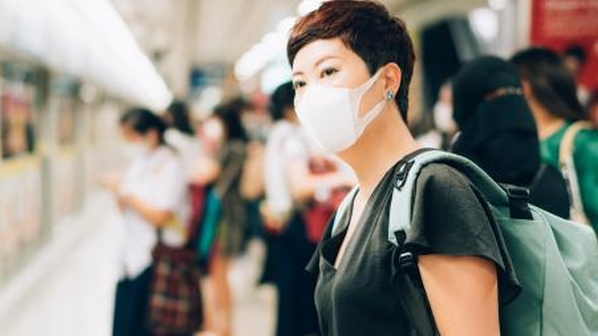The guidance says that while public transport is an essential service during pandemics, it is also considered a high-risk environment due to the high number of people in a confined space with limited ventilation, no access control to identify potentially sick persons, and a variety of common surfaces to touch such as ticket machines, handrails and doors.
“The key objective for public transport operators therefore has to be maintaining operation,” the UITP says. “Consequently, public transport operators should focus their pandemic plan efforts on staff, trying to protect them and preparing to deal with absenteeism.
“It is important to acknowledge that pandemic planning is not a stand-alone project, but should be integrated with existing crisis management structures and procedures in order to be effective."
Preparedness
The UITP adds that it is crucial to identify essential functions within the organisation and provide separate facilities for these workers if needed. Operators should:
- develop an inventory of staff qualifications and licenses in order to identify employees who can act as back up for critical positions
- review the stock and availability of essential protection and cleaning equipment and supplies and plan their distribution and refill
- review stock and supply chains for materials needed for operation, such as fuel, lubricants or spare parts, and investigate alternative suppliers if possible, and
- recognise that staff information is a key element of communication planning and that reassurance is needed, as a major disease outbreak will be a key topic within media and public discussion - a basic “questions and answers” section should be set up on internal websites to provide information for employees.
Personal Protection
The UITP says personal protection measures should be provided for all public transport networks regardless of risk level, and operators should be seen to increase personal protection and hygiene measures to reassure both staff and passengers even if the risk is considered very low.
As a general measure, staff should be reminded of basic personal hygiene rules, which include regularly washing hands, sneezing and coughing into the elbow and using paper towels. Information bulletins must be widely available and displayed throughout the premises.
Other UITP recommendations include:
- equipping staff rooms, meeting rooms and offices with hand disinfectants and paper tissues
- obtain local and national advice on the use of masks and recommended types of masks
- adapting cleaning routines with increased focus on disinfecting common surfaces and waste disposal
- equipping employees with the means to clean and disinfect areas where cleaning is not possible between shifts, and
- making staff who will tend to sick travellers, clean body fluids or potentially contaminated items and surfaces wear disposal gloves.
Reduction of contact
Reduction of contact measures are recommended if the risk level is high, for example if there are confirmed outbreaks. This means:
- customer service staff should only be available in information booths or desks with sufficient distance from passengers
- assessing whether ticket inspections are needed during an outbreak as inspectors would be exposed to a very high risk of becoming infected
- assessing whether to close staff canteens
- remote working where possible, and
- replacing meetings by telephone conferences to reduce contact between employees.
Reduced service
Reducing services may be required if the risk level is high, or if staff availability becomes too low to sustain regular operation, and if demand drops significantly. A simple measure would be to introduce a weekend timetable during the week.
The UITP recommends that maintenance routines for equipment and rolling stock should be reviewed in order to identify the potential for advancing or delaying inspections. Operators should also contact local authorities to align crisis plans as an epidemic might lead to limited availabilities on their side.
The UITP says it is important to follow the information given by World Health Organisation (WHO), and to stay in close contact with the national health organisations and authorities and follow their guidelines.
However, the UITP says public transport is the backbone of the local and national economy and an essential service to be maintained as long as reasonable.

